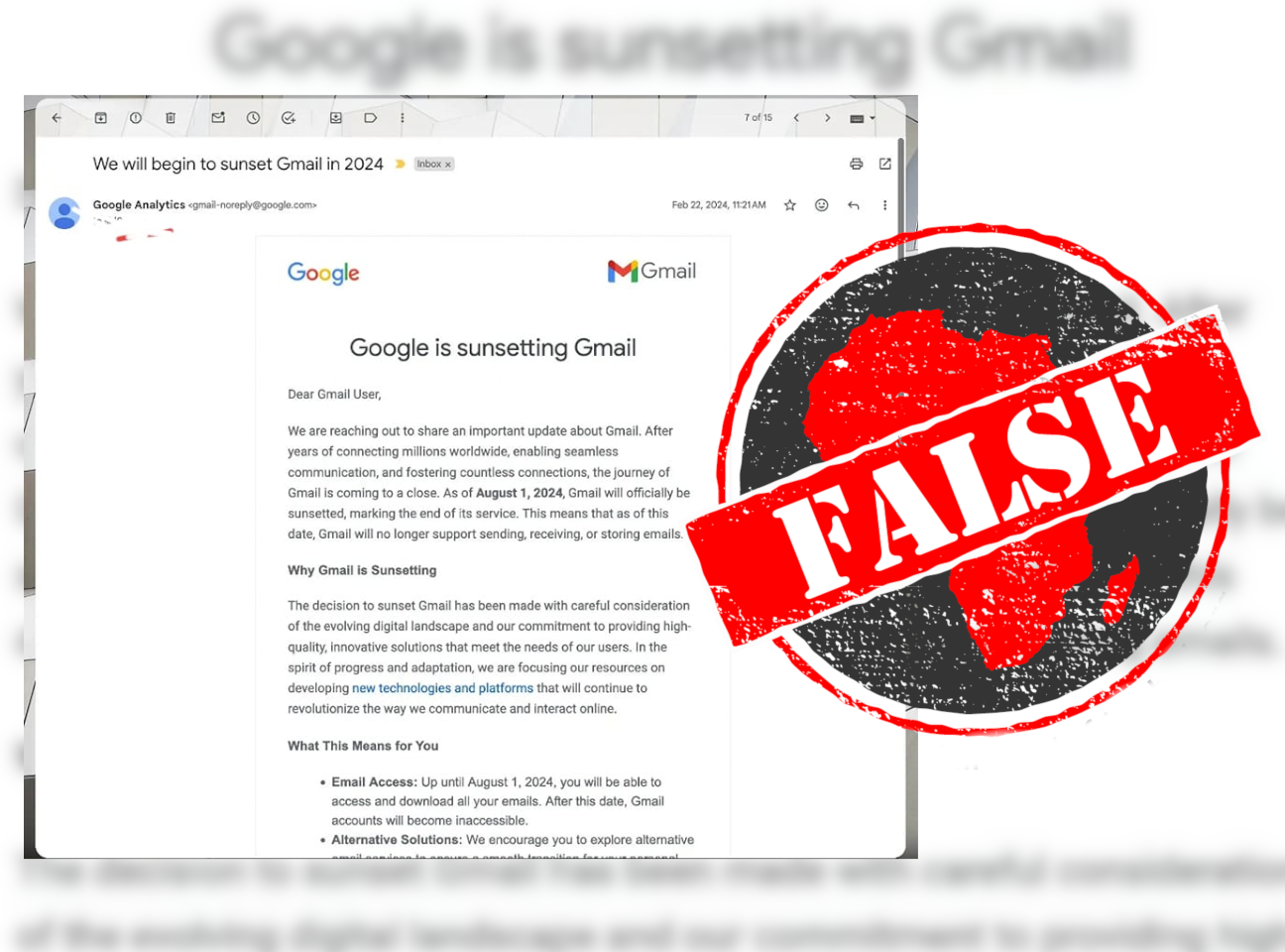IN SHORT: A screenshot of an email circulating on social media claims that Google is “sunsetting” its free email service Gmail in August 2024. But this is not true.
A screenshot of what appears to be an email from Google to Gmail users has been circulating on social media platforms since February 2024. It claims that the tech giant will phase out the popular email service later in 2024.
“As of August 1, 2024, Gmail will officially be sunsetted, marking the end of its service. This means that as of this date, Gmail will no longer support sending, receiving, or storing emails,” the screenshot reads, in part.
The screenshot, which includes the Google and Gmail logos, says the decision was made “after careful consideration of the evolving digital landscape” and that the company will focus on other products.
The claim began circulating after Google announced it was pausing the generation of images of people in Gemini, its artificial intelligence tool, following sharp criticism of inaccuracies.
In 2023, Google announced that it would retire Gmail’s “Basic HTML View” in 2024. It was outdated but served as a backup option for those who only needed a basic default view of their inbox.
The screenshot about “Gmail sunsetting” has been posted on Facebook here, here, here, here, here, here, here, here, and on X (formerly Twitter) here, here, here, here, here and here. These posts have generated millions of engagements.
If authentic, the email would worry many, given Gmail’s reach. But did the tech company send this email? We checked.

‘Gmail is here to stay’
Launched in 2004, Gmail is one of the world’s most popular email platforms, with hundreds of millions of users. It seems unlikely that Google would consider shutting it down.
We searched for news on this and found no evidence that the company had made such an announcement. There is no such update on Google’s official website.
On 22 February 2024, Gmail posted a message on X saying: “Gmail is here to stay.”
Republish our content for free
For publishers: what to do if your post is rated false
A fact-checker has rated your Facebook or Instagram post as “false”, “altered”, “partly false” or “missing context”. This could have serious consequences. What do you do?
Click on our guide for the steps you should follow.
Publishers guideAfrica Check teams up with Facebook
Africa Check is a partner in Meta's third-party fact-checking programme to help stop the spread of false information on social media.
The content we rate as “false” will be downgraded on Facebook and Instagram. This means fewer people will see it.
You can also help identify false information on Facebook. This guide explains how.


Add new comment